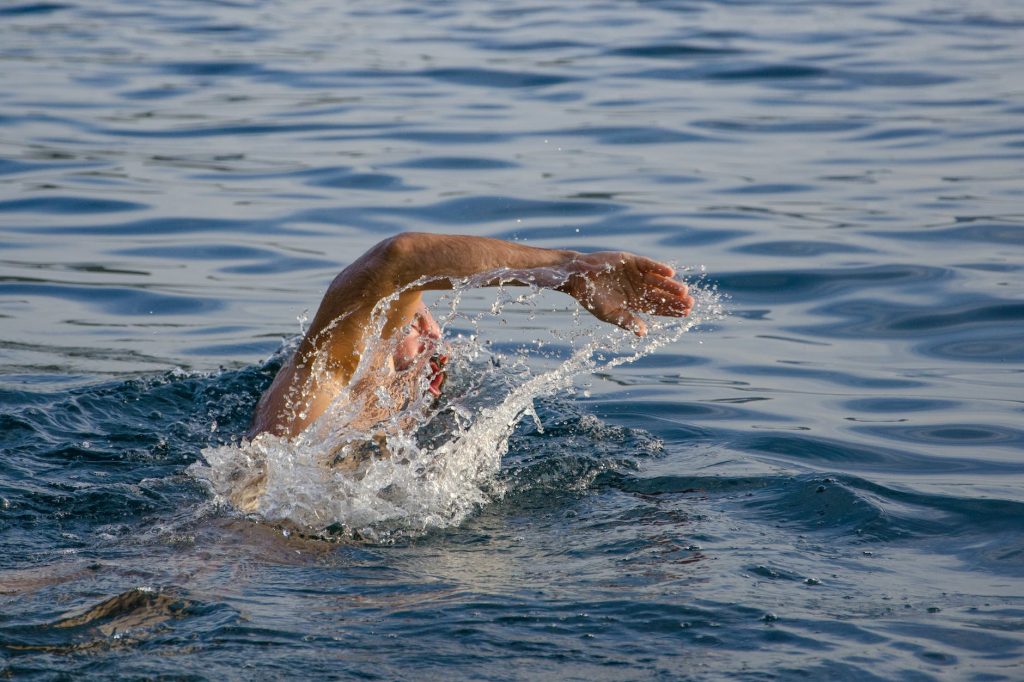For professional swimmers, maintaining a great physical condition is obviously of the utmost importance, but there are also other considerations. The effect of chlorine and sun exposure on your skin and hair is a key concern, and there are also other ways swimming regularly can impact a person’s health.
In this article, we will discuss important routines for professional swimmers to maintain their overall health, condition, and well-being.
Hair and Skin Routines For Swimmers
Swimming in a pool that contains chlorine or in saltwater can have lasting damage on a person’s hair and skin which is why it is important to have a self-care plan in place if you are a regular or professional swimmer.
Hair
If you’re a swimmer, you know that chlorine can be no friend to your hair. But with the right product, it doesn’t have to be an enemy either! A specially-designed swimmers shampoo can help protect your hair from the harsh effects of chlorine, protecting it from becoming dry, brittle, and unmanageable.
Swimming shampoos are specifically formulated with ingredients that can help to protect your hair from chlorine. Many contain what’s called chelating agents, which help to bind chlorine molecules so they don’t damage the hair. Other common ingredients include surfactants, which can help to reduce surface tension so that dirt and other impurities become less likely to stick and damage the hair.
Using a swimming shampoo is easy—you simply work it into your wet hair, let it sit for a few minutes, then rinse thoroughly. To get maximum benefits from your swimming shampoo, be sure to use it before you swim. This will give the product time to work its magic and protect your hair from chlorine damage.
Skin
For regular swimmers, having a comprehensive and effective skincare routine is absolutely crucial. Constant exposure to chlorinated water and the elements can be quite harsh on your skin, requiring extra attention and care. It is imperative to protect and nourish your skin by incorporating specialized products that are specifically designed for swimmers.
There is a range of swimming shower gel that can be used to protect a person’s skin and used immediately after swimming to rejuvenate the skin. This specially-designed gel is meticulously formulated to combat the detrimental effects of chlorine, ensuring your skin remains healthy and free from any damage caused by prolonged exposure. It effectively removes the chlorine or salt buildup, but can also alleviate any inflammation or discomfort you may experience.
What sets swimming shower gel apart is its ability to go beyond basic cleansing. It also possesses exceptional moisturizing and conditioning properties, leaving your skin irresistibly soft, silky, and beautifully conditioned after each swim. With the correct product, you can enjoy your time in the water without worrying about the adverse effects of chlorine, making it an indispensable addition to any dedicated swimmer’s skincare routine.
5 Routines for Professional Swimmers To Improve Performance
Like any sport, swimming can result in injury if a person does not prepare properly, have the necessary rest and recovery, or lacks sufficient physical training. Below are 5 routines to ensure a person is in top shape, avoiding pains and strains that could cause long-term damage.
1. Strength Training
Strength training is one of the key routines for professional swimmers. It involves performing exercises that improve muscle strength and power, which are essential for swimming faster and longer. Some of the best strength training exercises for swimmers include pull-ups, squats, lunges, bench presses, and deadlifts. These exercises target the major muscle groups, including the back, chest, arms, legs, and core. It is important to work with a professional trainer to develop a customized strength training program that suits your body type and swimming goals.
2. Flexibility Training
For swimmers, incorporating flexibility training into their routine is crucial. This training involves stretching exercises that enhance joint mobility and prevent injuries. By increasing the range of motion, reducing muscle tension, and improving body alignment, flexibility training ultimately enhances swimming performance. Dynamic stretching, static stretching, and foam rolling are among the most effective exercises for swimmers. Remember to perform stretching exercises before and after each swim session, focusing on the major muscle groups such as the shoulders, hips, back, and legs.
3. Endurance Training
Endurance training is essential for swimmers who want to swim longer distances without getting tired. Endurance training involves performing exercises that increase cardiovascular fitness and breathing capacity. Some of the best endurance training exercises for swimmers include swimming laps, running, cycling, and rowing. These exercises can be done at different intensities, depending on your training goals. It is important to gradually increase your endurance training volume and intensity to avoid overtraining and injuries.
4. Speed Training
Speed training is important for swimmers who want to improve their race times and compete at higher levels. Speed training involves performing exercises that improve muscle power and explosiveness, which are essential for swimming sprints and short distances. Some of the best speed training exercises for swimmers include sprinting, plyometrics, and resistance training. It is important to work with a professional trainer to develop a customized speed training program that suits your body type and swimming goals.
5. Recovery Routines
Recovery routines are essential for swimmers who want to prevent injuries and perform at their best. Recovery routines involve activities that decrease muscle soreness, promote relaxation, and enhance muscle healing. Some of the best recovery routines for swimmers include massage, stretching, ice baths, and foam rolling. Recovery routines should be done after every swim session, and they should be customized based on your training goals and preferences.
Conclusion
Swimming is a great exercise to maintain excellent cardio and physical fitness, however, chlorine and salt water can cause damage to a person’s hair and skin. A lack of physical conditioning can also result in injury, while a lack of rest to help the body recover can lead to long-term problems. This is why it is crucial to develop a regular self-care and training regime if you are a professional swimmer.
